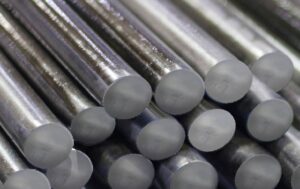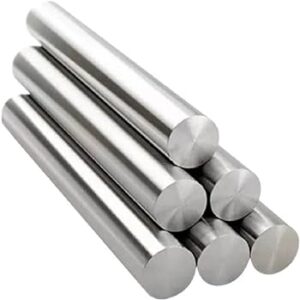Stainless steel is hailed as the pinnacle of metallurgical achievement, and among its various forms, 316 stainless steel round bars stand as a testament to its versatility and durability. In this extensive exploration, we unveil the myriad applications that reap the rewards of utilizing 316 stainless steel round bars, elucidating the unique properties that render it indispensable across a broad spectrum of industries.
Understanding the Allure of 316 Stainless Steel
What Makes 316 Stainless Steel Special?
Before delving into the applications that harness the potential of 316 stainless steel round bars, it’s essential to comprehend what sets this alloy apart:
- Corrosion Resistance: 316 stainless steel’s exceptional resistance to corrosion, especially in chloride-rich environments, makes it the go-to choice for applications exposed to seawater, chemicals, and corrosive substances.
- Mechanical Strength: With impressive tensile and yield strength, 316 stainless steel offers structural integrity, ensuring that components remain sturdy and reliable.
- Heat Resistance: It retains its properties even under elevated temperatures, making it suitable for applications involving high heat.
- Formability: The alloy’s ductility allows for easy fabrication into various shapes, including round bars, without compromising its strength.
Now, let’s explore the diverse realms where 316 stainless steel round bars shine.
Applications in the Marine Industry
1. Boat Building
The marine environment is notorious for its corrosive nature. 316 stainless steel round bars find extensive use in boat building, where they serve as components for fittings, railings, and anchor systems. Their resistance to saltwater corrosion ensures the longevity and safety of maritime vessels.
2. Offshore Structures
Offshore platforms, oil rigs, and coastal structures demand materials capable of withstanding harsh sea conditions. 316 stainless steel round bars are a preferred choice for these applications, ensuring the structural integrity and safety of such installations.
Medical and Pharmaceutical Equipment
3. Surgical Instruments
In the realm of healthcare, precision is paramount. The biocompatibility of 316 stainless steel makes it an ideal material for surgical instruments. Its corrosion resistance and ease of sterilization ensure that medical professionals can rely on these tools for critical procedures.
4. Medical Implants
Implantable devices, such as pacemaker components and orthopedic implants, require materials that won’t trigger adverse reactions in the human body. 316 stainless steel’s biocompatibility and corrosion resistance make it an excellent choice for these life-enhancing devices.
Food Processing and Catering
5. Food Processing Equipment
Hygiene is paramount in the food industry. 316 stainless steel’s non-reactive nature and ease of cleaning make it the material of choice for food processing equipment, ensuring that food products remain uncontaminated.
6. Commercial Kitchens
Commercial kitchens benefit from the durability and corrosion resistance of 316 stainless steel. It’s commonly used for countertops, sinks, and equipment, enduring the rigors of a bustling kitchen environment.
Architectural Marvels
7. Handrails and Balustrades
In architectural design, aesthetics and longevity go hand in hand. 316 stainless steel round bars are employed in handrails and balustrades, combining their aesthetic appeal with corrosion resistance to create structures that stand the test of time.
8. Facade Cladding
For exterior applications, such as facade cladding on buildings, 316 stainless steel offers a sleek and modern appearance while maintaining its resistance to environmental factors and pollutants.
Chemical and Petrochemical Industry
9. Chemical Processing Equipment
Chemical processing plants require materials that can withstand exposure to aggressive chemicals. 316 stainless steel round bars are used for valves, pumps, and vessels in chemical plants, ensuring the safe and efficient handling of corrosive substances.
10. Oil Refineries
The petrochemical industry relies on 316 stainless steel for its corrosion resistance in the refining process. This alloy is crucial for the construction of heat exchangers, pipelines, and storage tanks in oil refineries.
Construction and Infrastructure
11. Structural Components
In the construction sector, 316 stainless steel round bars are utilized for structural components in buildings and bridges, particularly in environments with high humidity or pollution levels. Their corrosion resistance contributes to the longevity of these structures.
12. Reinforcement Bars
In regions prone to corrosion due to environmental factors, 316 stainless steel reinforcement bars offer a durable solution for concrete structures, enhancing their lifespan and structural integrity.
FAQ
Q1. What are the primary advantages of using 316 stainless steel in marine applications?
316 stainless steel’s resistance to corrosion in saltwater environments is its standout feature in the marine industry. It ensures the longevity and safety of boats, offshore structures, and coastal installations.
Q2. Can 316 stainless steel round bars be used in both indoor and outdoor architectural applications?
Yes, 316 stainless steel’s aesthetic appeal and corrosion resistance make it suitable for both indoor and outdoor architectural applications, including handrails, balustrades, and facade cladding.
Q3. Are there specific guidelines for using 316 stainless steel in medical implants?
Yes, there are strict regulations and guidelines for using 316 stainless steel in medical implants. It must meet biocompatibility standards and undergo rigorous testing to ensure patient safety.
Q4. How does 316 stainless steel compare to other stainless steel alloys for chemical processing equipment?
316 stainless steel’s resistance to corrosion in a wide range of chemicals makes it a popular choice for chemical processing equipment. However, for highly specialized applications, other alloys with specific properties may be preferred.
In Conclusion
The applications of 316 stainless steel round bars are as diverse as the industries they serve. Their corrosion resistance, mechanical strength, and versatility make them indispensable in marine, medical, food processing, architectural, chemical, and construction sectors. As technology advances and industries evolve, 316 stainless steel continues to play a pivotal role in shaping the infrastructure and innovations that drive progress in our modern world.


